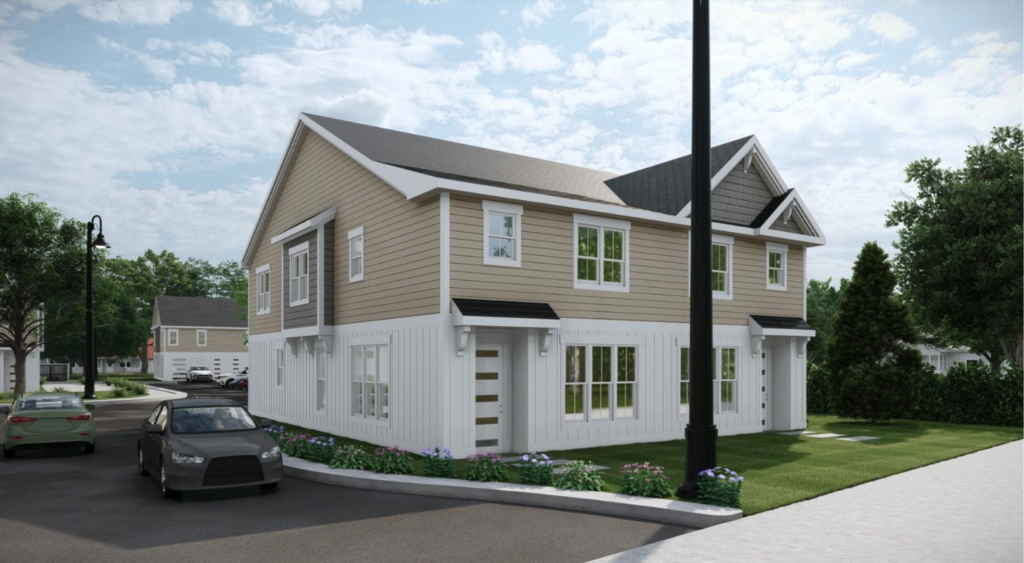The Difference Between a Condo and a Townhouse: A Comprehensive Guide
Both condos and townhouses offer unique benefits and can be great investment opportunities. By understanding the differences and evaluating your priorities, you can make a choice that best fits your lifestyle and financial goals.
Among the most common residential properties are condominiums (condos) and townhouses. While they may seem similar at first glance, they have distinct differences that can significantly impact your living experience and financial responsibilities. In this comprehensive guide, we’ll explore the key differences between condos and townhouses, helping you make an informed decision when purchasing your next home.
Understanding Condos
1. Definition and Structure: A condominium, often referred to as a condo, is a private residence within a larger building or complex. These buildings can range from small multi-unit structures to high-rise towers. Condos can be found in urban, suburban, and even rural settings.
2. Ownership: When you buy a condo, you own the interior space of your unit, but the building’s exterior and common areas are jointly owned with other condo owners in the complex. This shared ownership includes amenities such as hallways, gyms, pools, and recreational areas.
3. Fees and Maintenance: Condo owners pay monthly homeowner association (HOA) fees. These fees cover the maintenance of common areas, exterior building repairs, landscaping, and sometimes utilities. The HOA is responsible for managing these tasks, which can be a relief for those who prefer not to handle maintenance themselves.
4. Lifestyle: Condos often attract individuals who prefer a low-maintenance lifestyle. With shared amenities and services, such as security and landscaping, residents can enjoy a sense of community and convenience. Condos are popular in urban areas where space is limited, offering a more affordable entry point into homeownership compared to single-family homes.
5. Rules and Regulations: Living in a condo means adhering to the rules and regulations set forth by the HOA. These rules can include restrictions on pet ownership, renovations, and even renting out your unit. It’s essential to review the HOA’s bylaws before purchasing a condo to ensure you’re comfortable with their guidelines.

Understanding Townhouses
1. Definition and Structure: A townhouse is a multi-floor home that shares one or more walls with adjacent properties but has its own entrance. Townhouses are often arranged in rows, creating a consistent and cohesive neighborhood appearance. They can be found in both urban and suburban settings.
2. Ownership: When you buy a townhouse, you own both the interior and the exterior of the unit, including the roof, front yard, and backyard (if applicable). This type of ownership is known as “fee simple” ownership. You have more autonomy over your property compared to a condo.
3. Fees and Maintenance: Townhouse owners may also pay HOA fees, but these are generally lower than condo fees. The HOA in a townhouse community typically handles common area maintenance, such as landscaping and snow removal, but owners are responsible for their own property’s exterior and interior upkeep.
4. Lifestyle: Townhouses appeal to those who desire more space and privacy than a condo offers but still want the benefits of community living. They often include features like private garages, small yards, and multiple levels, providing a similar experience to a single-family home. Townhouses are ideal for families, offering more room to grow.
5. Rules and Regulations: Like condos, townhouses are subject to HOA rules and regulations. However, these are typically less restrictive, giving owners more freedom to make changes to their property. It’s still crucial to review the HOA’s guidelines before making a purchase.
Recap of Key Differences: Condo vs Townhouse
1. Ownership Structure:
- Condo: Own the interior space; common areas are shared.
- Townhouse: Own both the interior and exterior, including land.
2. Maintenance and Fees:
- Condo: Higher HOA fees; exterior and common area maintenance included.
- Townhouse: Lower HOA fees; responsible for property maintenance.
3. Privacy and Space:
- Condo: Less privacy and space; shared walls and common areas.
- Townhouse: More privacy and space; own entrance and yard.
4. Lifestyle:
- Condo: Ideal for low-maintenance, urban living.
- Townhouse: Ideal for families and those wanting more space.
5. Rules and Regulations:
- Condo: Stricter HOA rules.
- Townhouse: More flexibility in property modifications.
Making Your Decision
Choosing between a condo and a townhouse depends on your lifestyle, budget, and personal preferences. Work with a knowledgeable real estate agent and explore both options.
Here are a few questions to consider:
- How much space do you need? If you need more space and privacy, a townhouse might be the better option.
- How important is maintenance-free living? If you prefer minimal maintenance responsibilities, a condo could be more suitable.
- What’s your budget? Condos often have lower purchase prices but higher HOA fees. Townhouses might have higher prices but lower fees.
- What are your long-term plans? Consider your future needs, such as starting a family or downsizing.
Whether you choose a condo or a townhouse, both options provide the chance to enjoy homeownership with varying degrees of convenience, privacy, and community involvement. Evaluate your needs carefully and consult with a real estate professional to find the perfect home for you. Happy house hunting!
